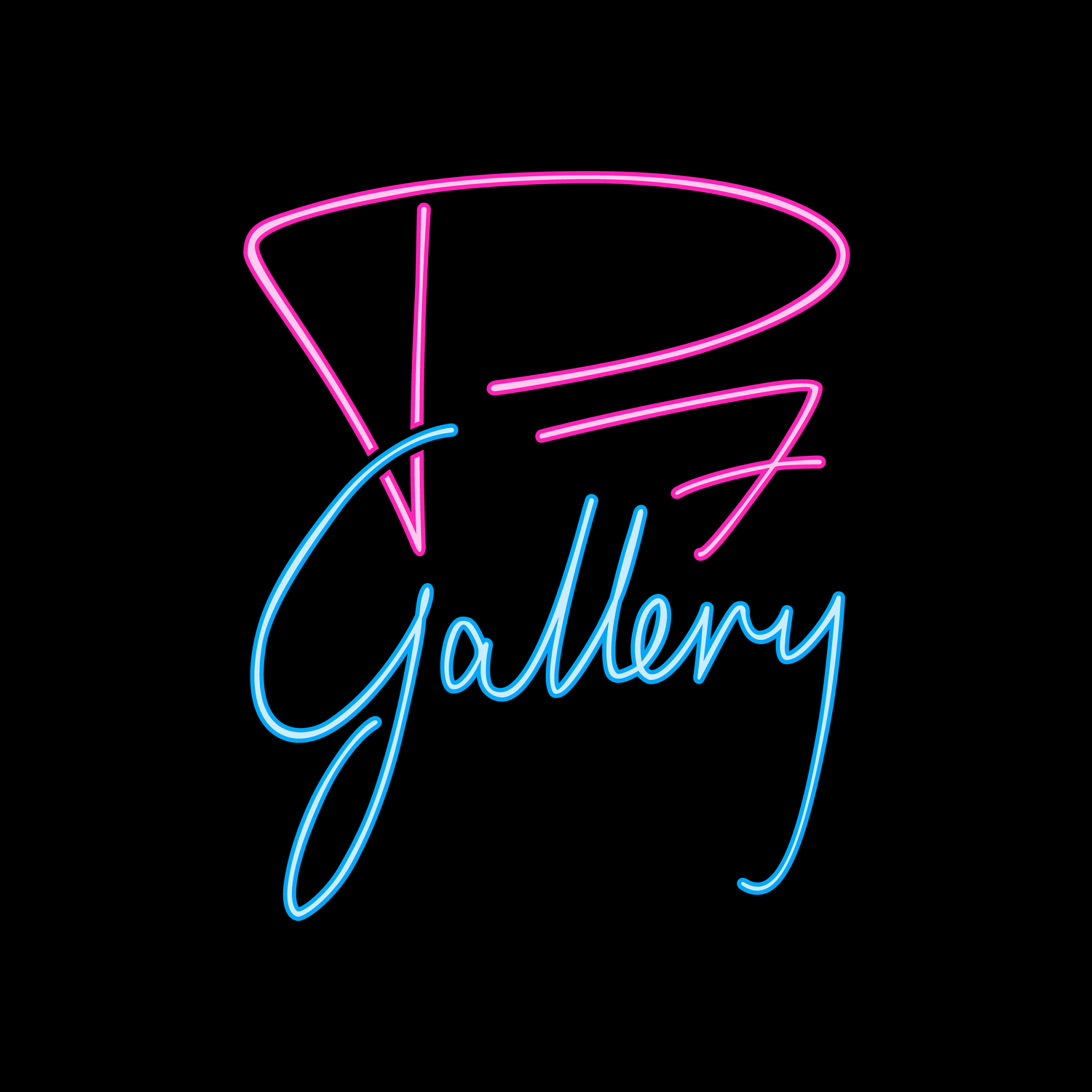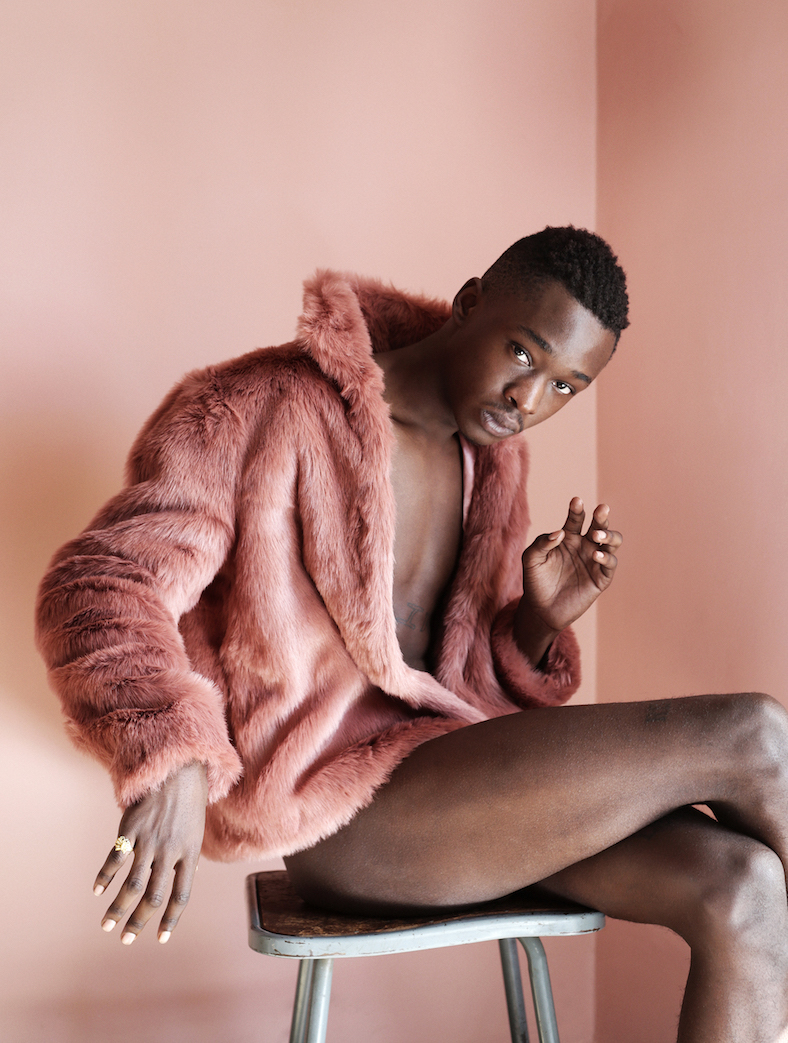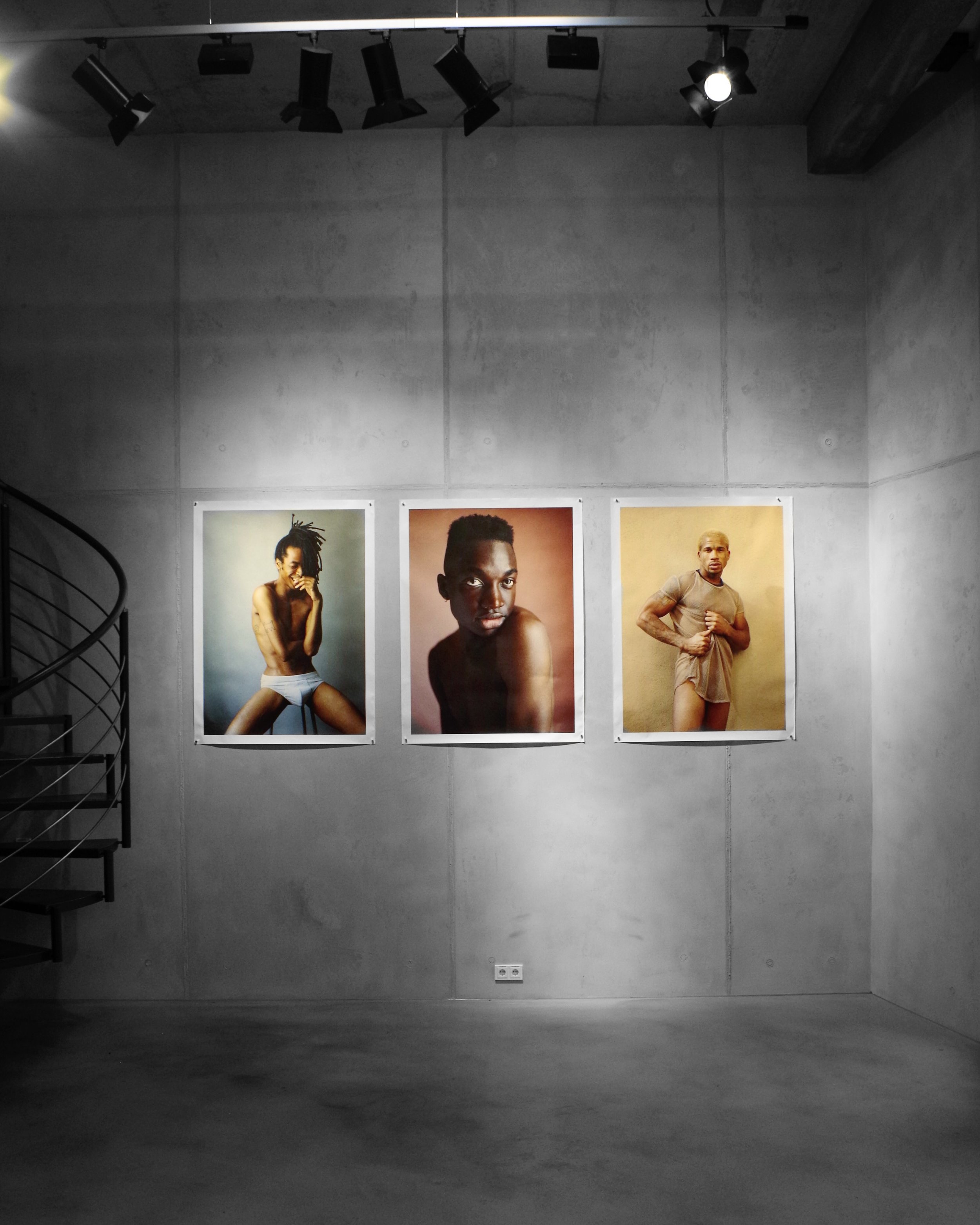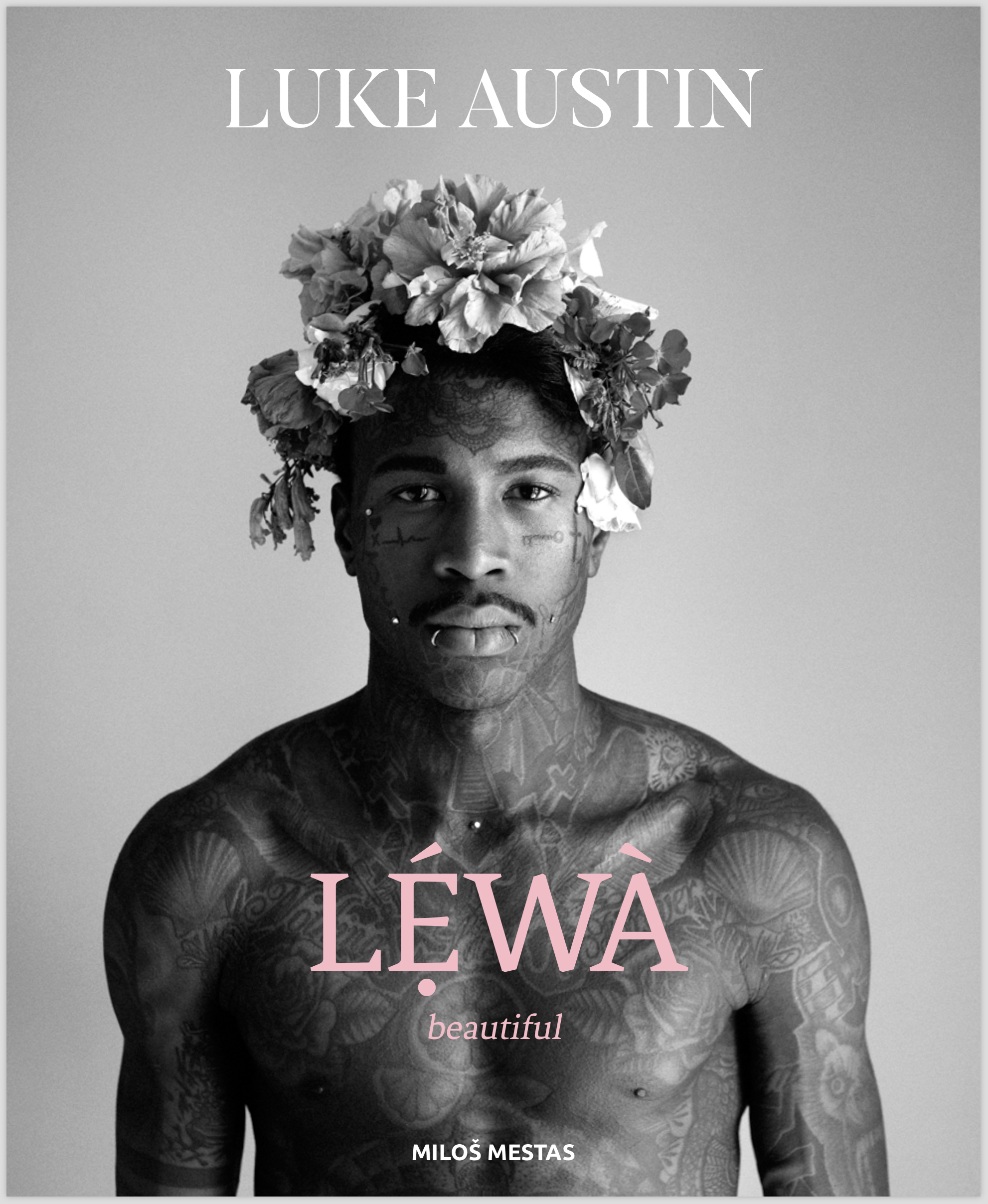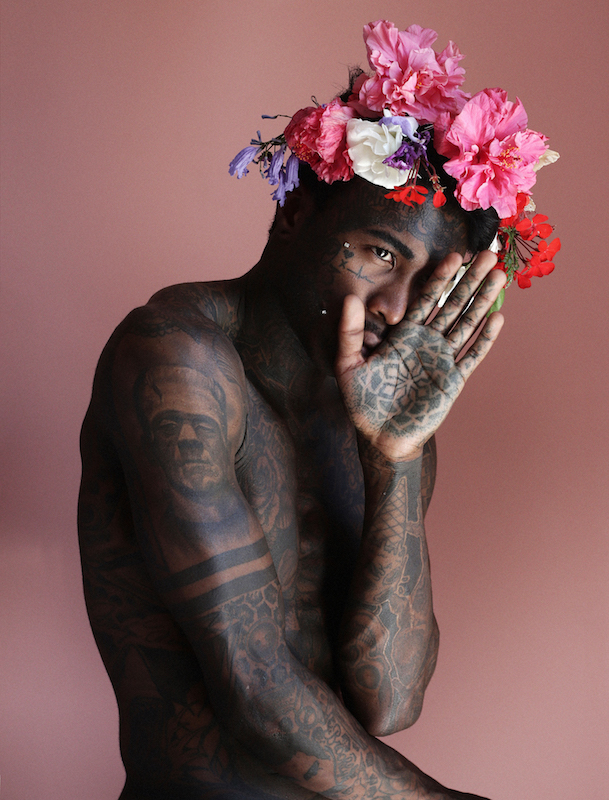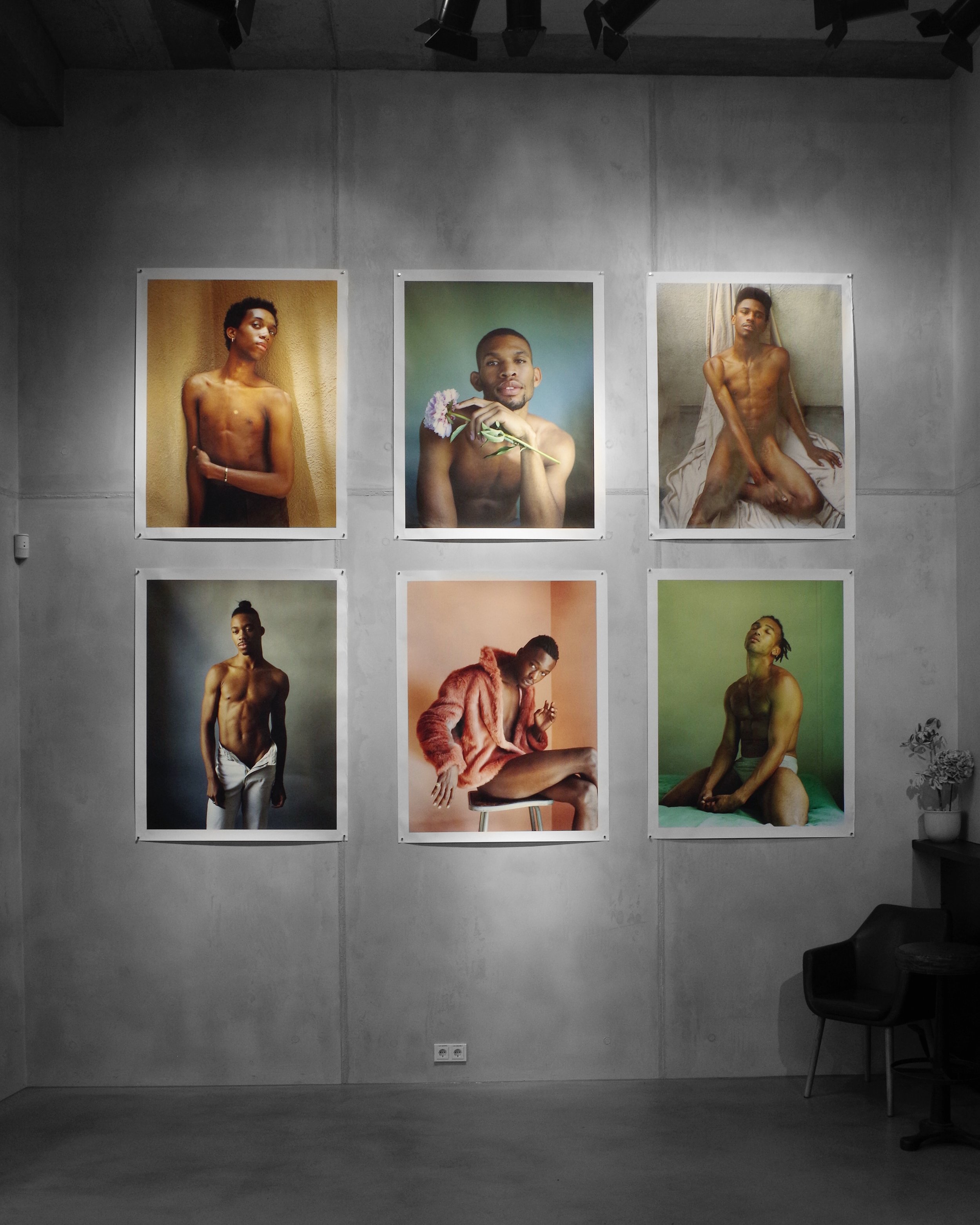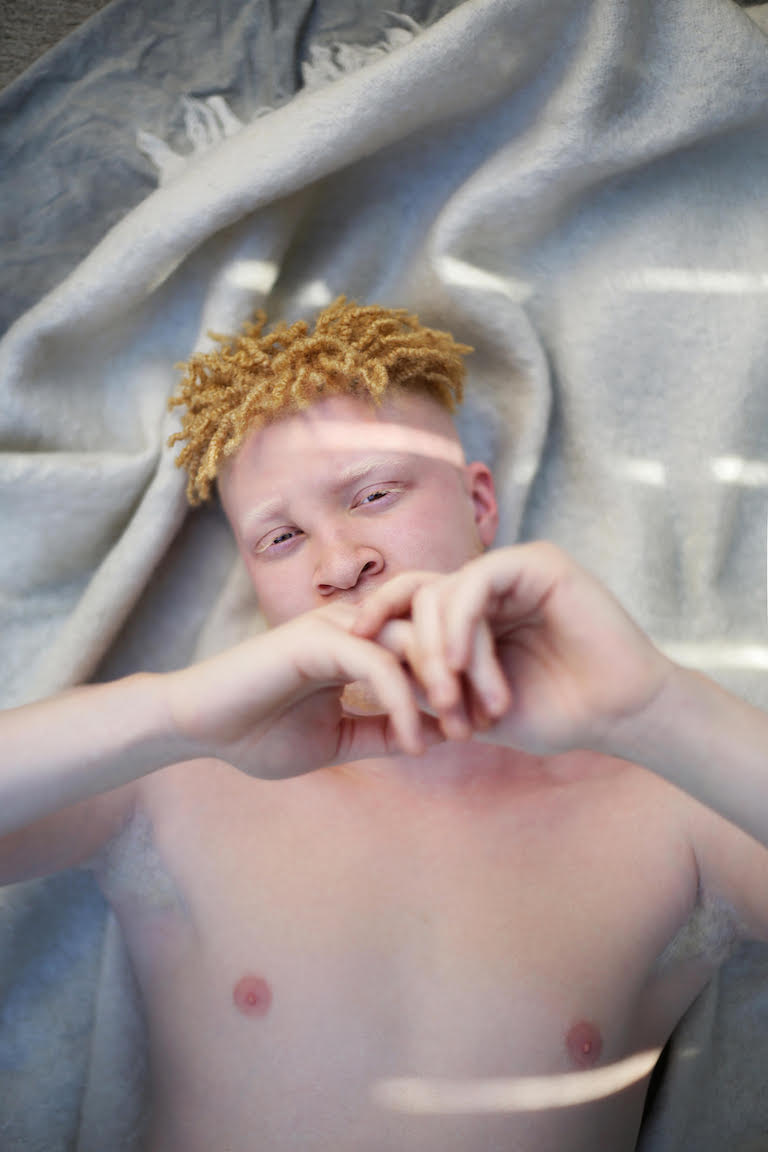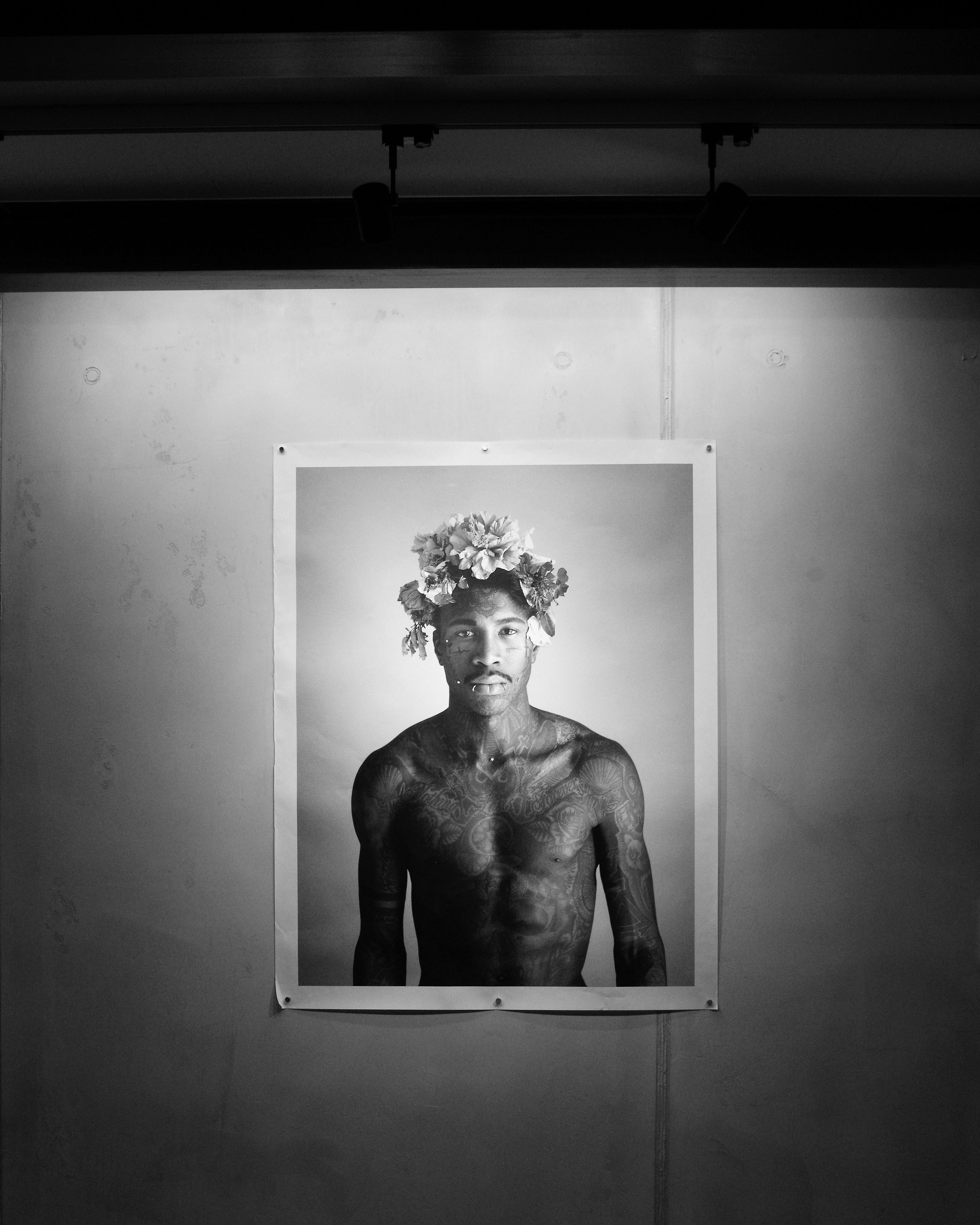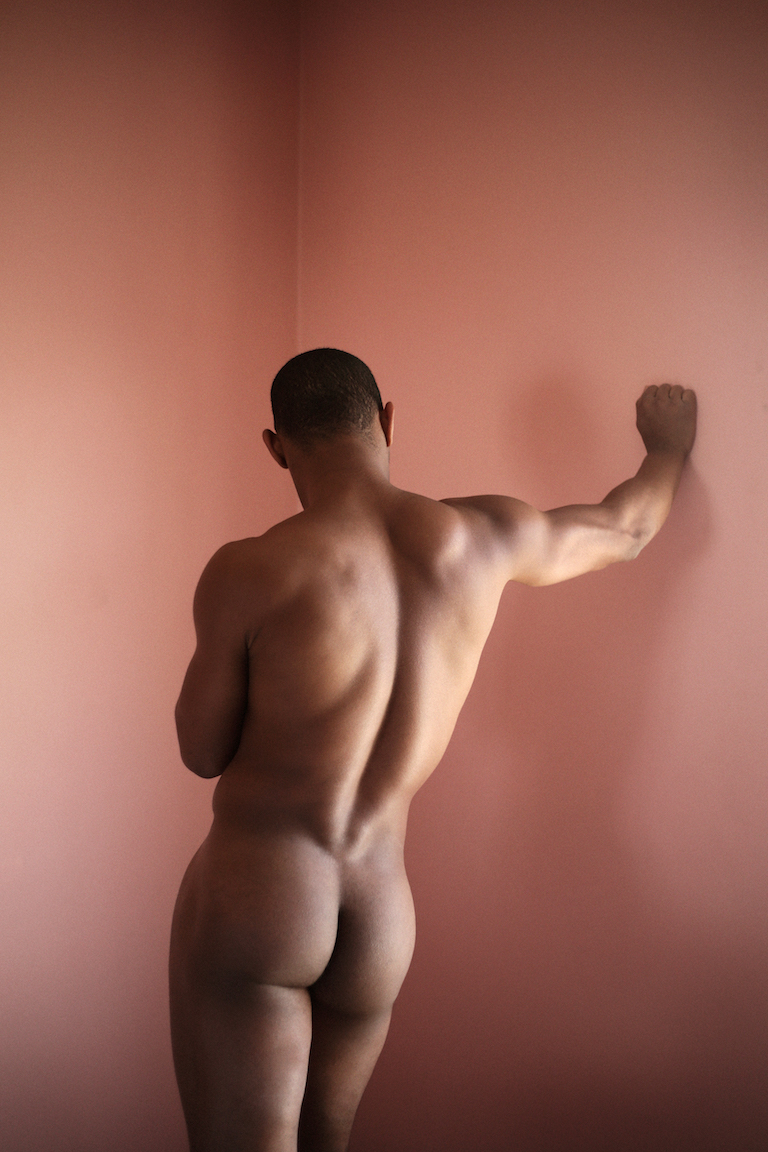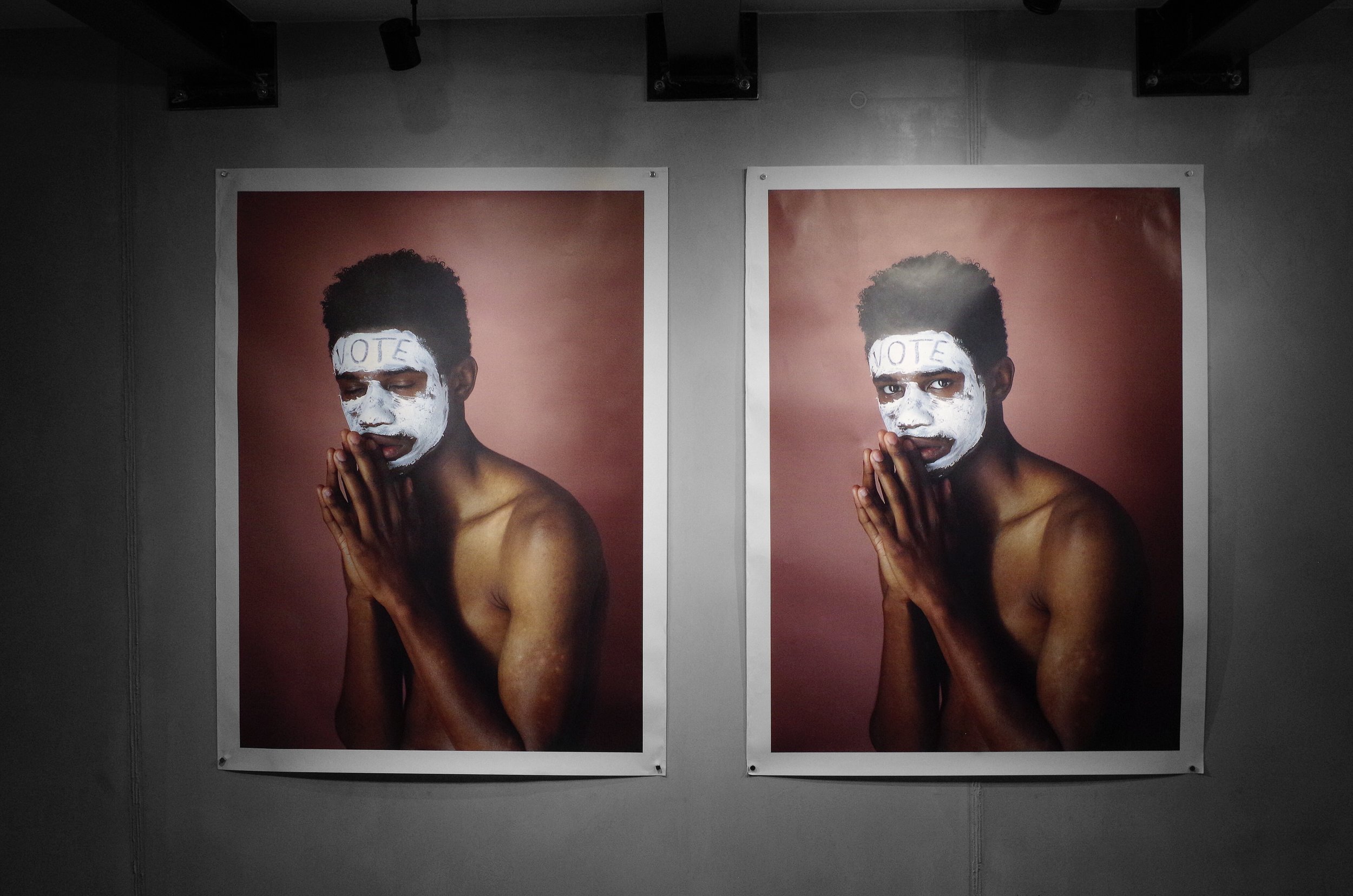Exhibition & Book Launch / Interview by Joseph Wolfgang Ohlert (Eng/Ger)
Hey Luke, we met in Berlin in 2013 because you wanted to take photos of me. At that time, you were travelling around Europe to take photos for your first photobook BEAU BOOK. Instagram was just about to get very popular but your account got deleted because your selfies were "too hot" for the Instagram community guidelines. I remember I got an account just because of you. I wanted to see what Instagram was about. Now we both have incorporated social media into our professional work. Your photographic work grew with your social media presence. Do you separate "Instagram aesthetics" from "art/photography"?
This is what I am currently struggling with. Instagram is a different beast now than it was back in 2012. Now it is all about marketing and selling yourself and making yourself a ‘brand’, but with a very specific look. An influencer/lifestyle look. I notice now that my photographic work/portraits do not get much attention on Instagram, but photos of me get a lot of attention. So, it has taken me a while to adjust to that because for a long time it was affecting my work. It made me feel like everything I was making was "shit". Now I try to separate ‘Instagram work’ from my real photographic portraiture work. Work that I am currently working on is no longer posted to Instagram.
How important is social media for photographers anyway?
Well, this is the problem because I think social media is very important. There are times when I want to delete my account, but its too important. It is such an incredible tool to get your work out to the masses. And I probably would not have been able to make the books I have or have shows if it wasn’t for Instagram. It has definitely helped me to get noticed across the world.
Since we get immediate feedback on what we post, does it change the way we work and take photos?
Yes, I think so. Well, it used to change the way to work for me. I would delete portraits if no one ‘liked’ them. Or I would choose models that I knew would do well on Instagram. And I hate that.
How much integrity does an artist on social media have, and what is the "right" way to use social media?
This is also something I have been struggling with. In an article about me recently, a writer stated that I was "not an art kid but an Instagram star" and that was hard to read. I guess you can be both? I had two solo photo shows before Instagram was invented, so I don’t know. Maybe some people see me just as an instagrammer and not a ‘real’ photographer, and that’s disappointing. And that’s why I sometimes want to delete the whole thing, but then I worry about just disappearing in this time when I think you need to be really active online. And I have no idea about what the right or wrong way is to using it, you just have to do you.
You did not only publish a photobook, but also a great amount of zines with different theme ideas. How is it going with that, can you tell me more about the themes and ambitions?
When I get back to LA I will finish Mini Beau Book 10. And this will be the last one. Book 10 will feature trans men that I have spent the last year photographing. I think that trans men are extremely underrepresented in gay media.
How many photobooks do you possess? Do you remember the first one you got?
I have a few piles of them at home, maybe 20. Slowly growing my collection. I think my first was a Helmut Newton book. My favorite is my David Armstrong 615 Jefferson Ave. I look at that a lot.
You photographed a lot of people. What is challenging you the most, as in, are you where you want to be or still want to get further?
I think I am always growing as a photographer. I have been shooting portraits since 2007 and what I have noticed is the more simplistic they are, the better. When I started I would try to do big amazing things with lights and concepts and now all I need is a window and a wall. I try to evoke a feeling or mood with simple gestures and looks from the model. I am working on playing around with the printed work now. Making sculpture work and one-off pieces with the printed portraits. Challenging and pushing myself in to new areas. More fine art work.
LÉWÀ is your second photobook focusing on the beauty of POC [people of color] from your perspective. People are celebrating your photos but you also got some harsh critique on your artist statement. ("can white photographers capture the black male experience?" by ID Magazine Online)
Would you still write it the same way, or do you want to clarify, add or change anything?
Of course I would write it the same way. I stand by what I write in the book and I think the book is incredibly beautiful and important. I 100% understand the responses I have received that do not agree with me making this work. All the opinions are valid and I understand that, in America especially, that this is a very touchy subject. Racism in America is a very deep, dark, awful, complex thing. Straight away, a white photographer releasing a book of black men is not going to be okay with some people. And I understand why. And I expected their responses. But on the other hand, there are a lot of people that have positive things to say about the book. At the end of the day it opens up conversations and discussions which I think is good. What is the right way to be an ally? Not everyone is going to agree on one way, everyone has a different opinion on that. As long as you spend time with and really listen to the POC around you, then you just have to do what you believe is the right thing. And I think the imagery in LÉWÀ is beautiful and should be seen by as many eyes as possible.
How important is an artist statement anyway? Can’t a photographer’s work speak for itself? I often ask, "What is a picture or art-piece worth when you have to explain it?" What do you think?
I do think this work speaks for itself, but as a white man releasing this book, I obviously had to write a foreword and explain why the book was made. The people who do not know me need to be able to read the reasoning behind it.
"LÉWÀ" is available at our ONLINE SHOP https://www.p7gallery.de/shop
Hallo Luke, wir haben uns 2013 kennengelernt, weil Du Fotografien von mir machen wolltest. Damals bist Du durch Europa gereist, um Fotos für deinen ersten Bildband BEAU BOOK zu schießen. Instagram war gerade am Kommen, aber Dein Account wurde gelöscht, weil Deine Fotos „zu heiß“ für die Instagram Guidelines waren. Du hattest erzählt, dass Du schon 20.000 Followers hattest, was für damalige Verhältnisse eine große Menge war. Ich erinnere mich daran, dass ich mir nur deinetwegen einen Account anlegte. Ich wollte sehen, worum es bei Instagram ging. Heute haben wir beide soziale Medien in unsere professionelle Arbeit integriert.
Deine fotografische Arbeit ist mit deiner Social Media Präsenz gewachsen. Trennst Du „Instagram Ästhetik“ von „Kunst/Fotografie“?
Damit mühe ich mich gerade ab. Instagram ist ein ganz anderes Biest heute als damals, 2012. Jetzt dreht sich allem um Marketing und Selbstvermarktung und sich selbst als ‚Marke‘ verkaufen, aber mit einem ganz bestimmten Look. Ein Influencer/Lifestyle Look. I merke heutzutage, dass meine fotografischen Arbeiten/Portraits nicht viel Aufmerksamkeit auf Instagram erlangen, aber Fotos von mir bekommen sehr viel Aufmerksamkeit. Also, ich habe eine Weile gebraucht, um mich daran zu gewöhnen, weil es eine lange Zeit Einflüsse auf meine Arbeit hatte. Es fühlt sich so an, als ob alles, was ich mache „Mist“ sei. Jetzt versuche ich ‚Instagram Arbeiten‘ von meiner richtigen fotografischen Portraitarbeit zu trennen. Arbeiten, an deren ich gerade arbeite wird nicht mehr auf Instagram gepostet.
Wie wichtig sind soziale Medien für Fotografen überhaupt?
Na ja, das ist das Problem, weil ich glaube, dass die soziale Medien sehr wichtig sind. Es gibt Zeiten, wo ich meinen Account löschen möchte, aber es ist zu wichtig. Soziale Medien sind unglaubliche Werkzeuge, die Arbeit nach draußen an die Massen zu bringen. Und ich wäre womöglich nicht in der Lage, meine Bücher zu machen oder Ausstellungen zu haben, wenn es Instagram nicht gäbe. Die Plattform hat mir definitiv dabei geholfen, weltweit Aufmerksamkeit zu erlangen.
Da wir unmittelbar Feedback dafür bekommen, was wir posten: verändert das die Art, wie wir als Fotografen arbeiten und Fotos schießen?
Ja, ich glaube schon. Na ja, für mich war es eine Zeitlang so. Ich löschte Portraits, wenn keiner sie „like“ gegeben hat. Oder ich habe Models ausgewählt, von denen ich wusste, dass sie gut auf Instagram ankommen. Ich hasse das.
Wieviel Integrität besitzt ein Künstler auf sozialen Medien, und was ist der „richtige“ Weg, soziale Medien zu nutzen?
Das ist auch etwas, mit dem ich ringe. In einem Artikel über mich kürzlich gab der Autor an, dass ich „kein Kunst-Kind, sondern ein Instagram-Star“ wäre, und das war hart zu lesen. Vermutlich kann man beides sein? Ich hatte zwei Solo Foto Shows bevor Instagram erfunden wurde, also weiß ich nicht so recht. Vielleicht sehen mich einige Leute einfach als einen Instagrammer und nicht „Fotografen“, und das ist enttäuschend. Und deswegen möchte ich manchmal das ganze Ding löschen, aber dann mache ich mir Sorgen, in diesen Zeiten, wo man wirklich aktiv online tätig sein muss, einfach zu verschwinden. Und ich habe keine Ahnung, was der richtige oder falsche Weg ist, es zu nutzen, Du musst einfach Du selbst sein.
Du hast nicht nur einen Bildband veröffentlicht, sondern auch eine große Menge an Zines* mit verschiedenen Themen. Wie läuft es, kannst Du mir mehr über die Themen und Ambitionen erzählen?
(*unabhängige Publikation aus der alternativen Schwulenkultur)
Wenn ich nach LA zurückkehre, werde ich das Mini Beau Book 10 fertigstellen. Book 10 wird Transmänner darstellen, die ich über das letzte Jahr fotografiert habe. Ich finde, dass Transmänner extrem unterrepräsentiert sind in Schwulenmedien.
Über wie viele Bildbände verfügst Du? Erinnerst Du Dich an den ersten, den Du hattest?
Ich habe einige Stapel von ihnen zu Hause, vielleicht 20. Ich vergrößere die Sammlung langsam. Ich glaube, mein erster war ein Helmut Newton Band. Mein Lieblingsband ist mein David Armstrong 615 Jefferson Ave. Den sehe ich mir oft an.
Du hast viele Menschen fotografiert. Was fordert Dich am meisten heraus, bzw. bist Du gerade da, wo Du sein willst, oder willst Du noch höher hinaus?
Ich glaube ich wachse stätig als Fotograf. Ich mache Portraits seit 2007, und ich habe festgestellt, je simpler sie sind, desto besser. Als ich anfing, versuchte ich große, umwerfende Dinge mit Lichtern und Konzepten zu machen und heute brauche ich lediglich ein Fenster und eine Wand. Ich versuche eine Emotion oder eine Stimmung hervorzurufen mit simplen Gesten und dem Aussehen des Models. I arbeite gerade daran mit gedruckten Werken zu arbeiten. Ich fertige Skulptur-Arbeiten und Unikate mit gedruckten Portraits an. Fordere mich heraus und pushe mich in neue Gebiete. Mehr bildende Kunst Arbeiten.
LÉWÀ ist Dein zweiter Bildband, der auf die Schönheit von POC [People of Color] aus Deiner Perspektive. Die Leute feiern Deine Fotos, aber Du bekommst auch scharfe Kritik über Dein Artist Statement. ("can white photographers capture the black male experience?" von ID Magazin Online)
Würdest Du ihn trotzdem auf die gleiche Weise schreiben, oder möchtest Du irgendetwas klären, hinzufügen oder ändern?
Natürlich würde ich es genau so wieder schreiben. Ich stehe dazu, was ich in diesem Buch schreibe, und ich denke dass der Band unglaublich schön und wichtig ist. Ich verstehe die Reaktionen, die nicht damit einverstanden sind, dass ich das Buch gemacht habe, zu hundert Prozent. Alle Meinungen haben ihre Gültigkeit und ich verstehe, dass – besonders in Amerika – dies ein sehr heikles Thema ist. Rassismus in Amerika ist ein sehr tiefliegendes, dunkles, schreckliches und komplexes Ding. Ein weißer Fotograf der einen Bildband über schwarze Männer veröffentlicht ist objektiv gesehen nicht in Ordnung für einige Menschen. Und ich verstehe, warum. Und ich habe ihre Reaktionen erwartet. Andererseits gibt es viele Menschen, die positive Sachen über das Buch zu sagen haben. Am Ende des Tages eröffnet es Gespräche und Diskussionen, ich denke, das ist gut. Was ist der richtige Weg, ein Mitstreiter zu sein? Nicht jeder wird mit einem bestimmten Weg einverstanden sein, jeder hat eine andere Meinung darüber. Solange man Zeit für das Thema aufwendet, und den POC um einen herum wirklich zuhört, dann muss man einfach das tun, was einem für richtig erscheint. Und ich glaube die Bildsprache in LÉWÀ ist wunderschön und sollte von so vielen gesehen werden wie möglich.
Wie wichtig ist überhaupt ein Artist Statement? Kann die Arbeit des Fotografen nicht einfach für sich selbst sprechen? Ich frage mich oft, was das Bild oder das Kunstwerk wert ist, wenn man es erklären muss. Was denkst Du darüber?
Ich glaube fest, dass diese Arbeit für sich selbst spricht, aber als weißer Mann, der diesen Bildband herausgibt, musste ich selbstverständlich ein Vorwort schreiben und erklären, warum das Buch gemacht wurde. Die Menschen, die mich nicht kennen, müssen in der Lage sein, die Argumentation dahinter zu verstehen.
"LÉWÀ" ist über unseren ONLINE SHOP erhältlich https://www.p7gallery.de/shop
